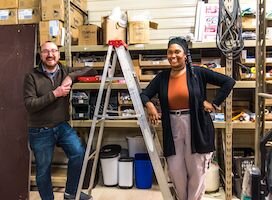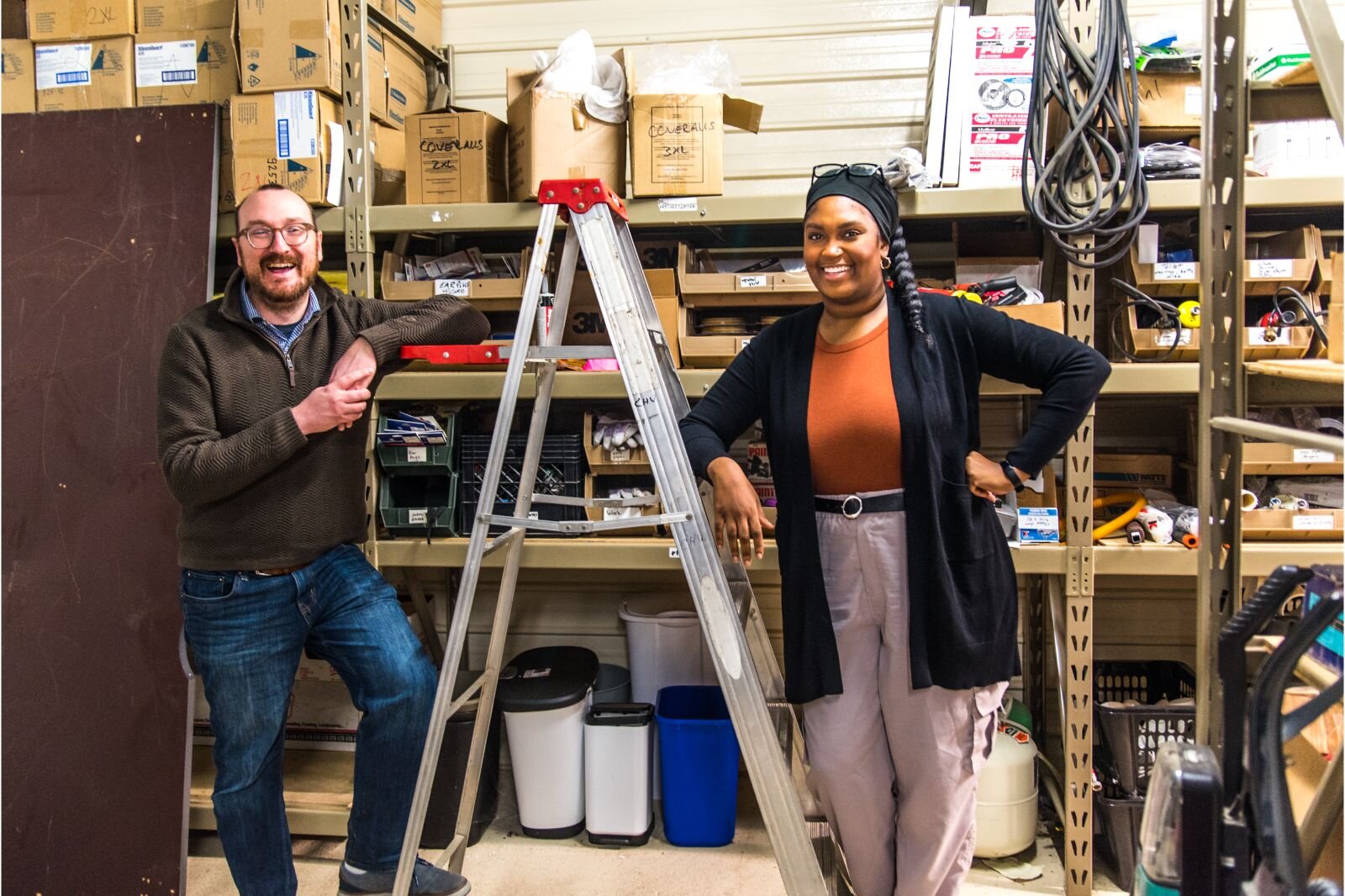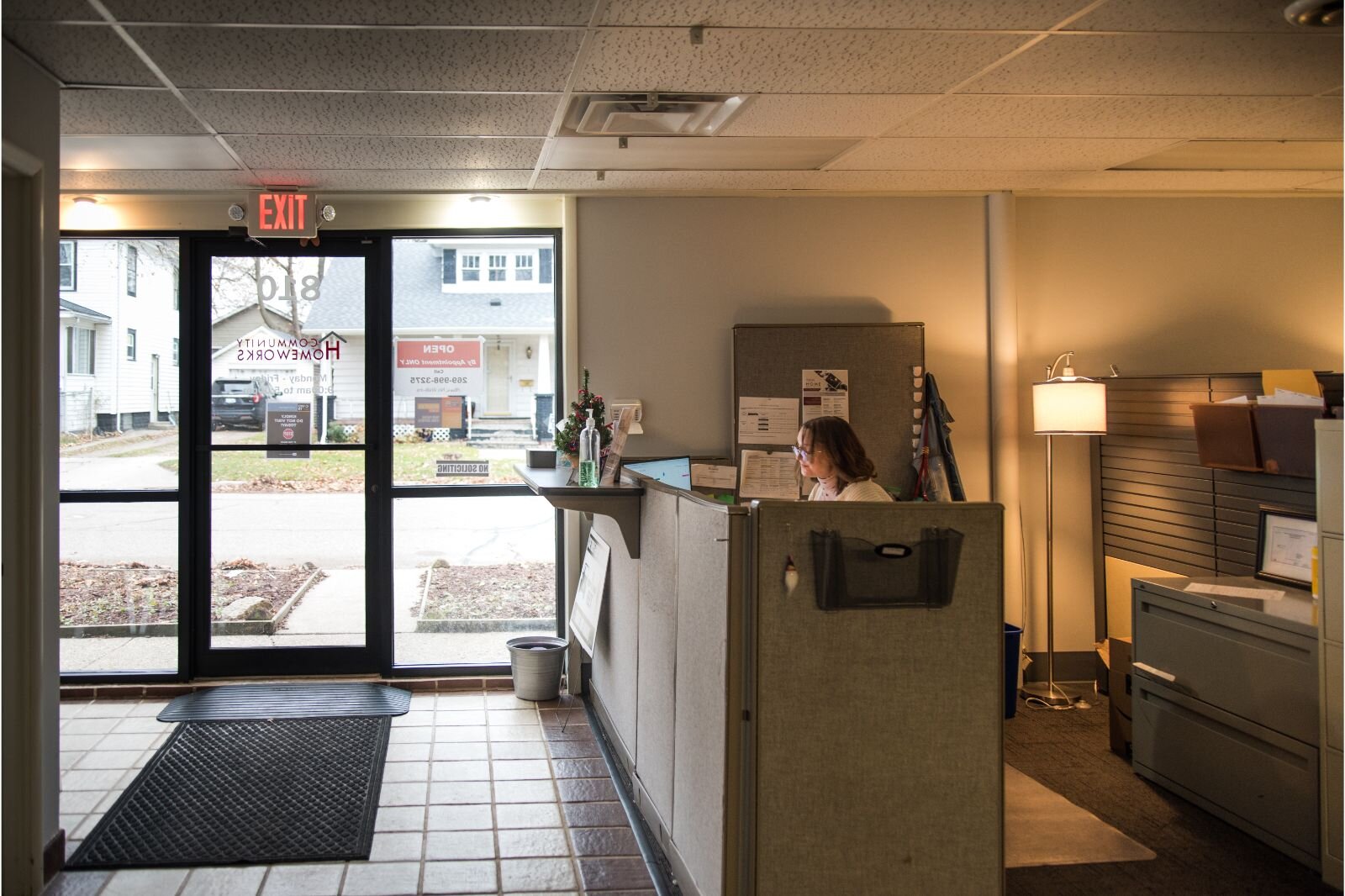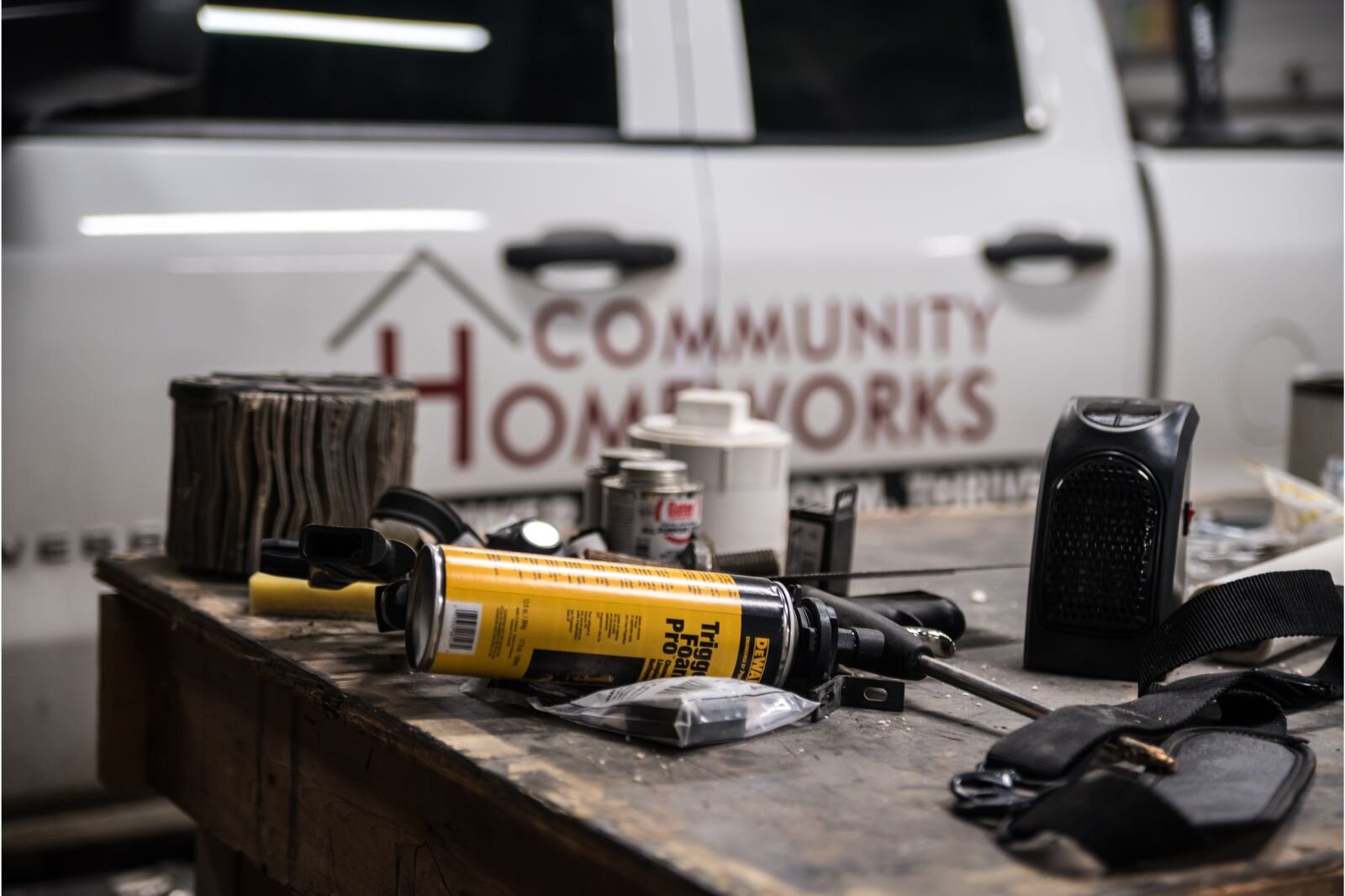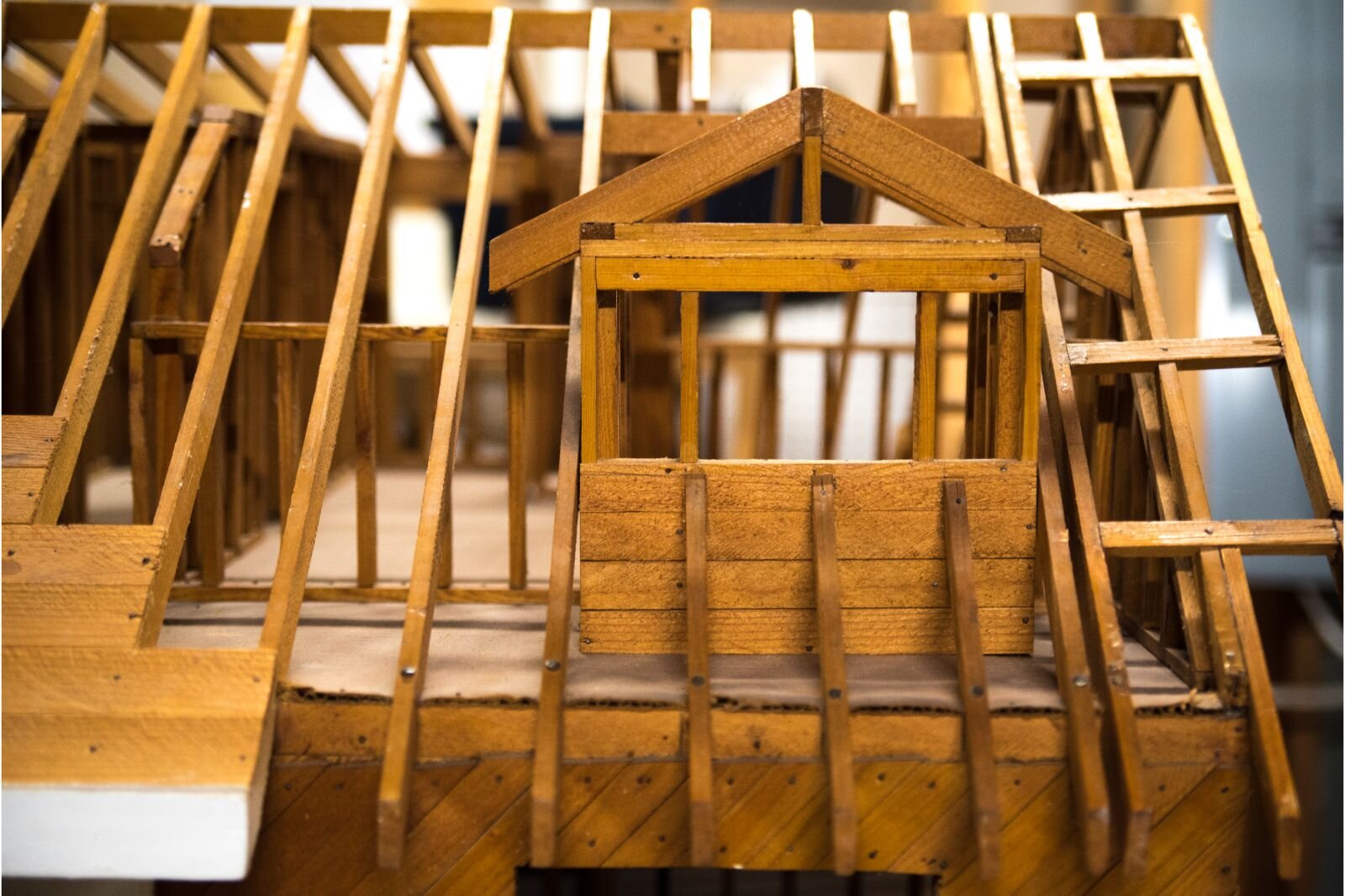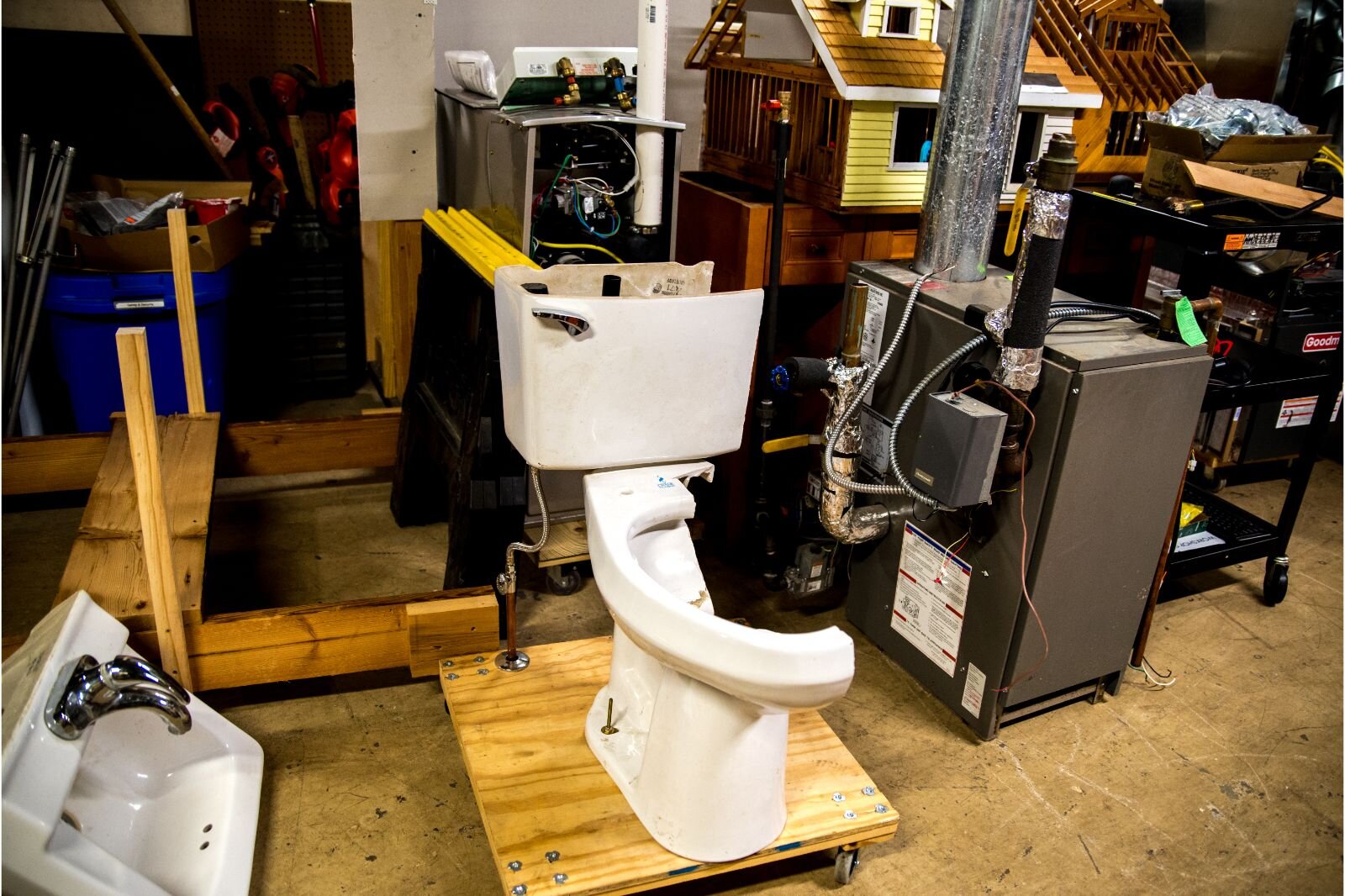In July the City of Kalamazoo approved a Housing Development Fund grant of $156,000 to go to Community Homeworks for a Critical and Code Enforcement Repair Program.
Editor’s note: This story is part of Southwest Michigan Second Wave’s series on solutions to affordable housing and housing the unhoused. It is made possible by a coalition of funders including the City of Kalamazoo, Kalamazoo County, the ENNA Foundation, and LISC.
Community Homeworks has seen some scary things in home repair.
Or, rather, home disrepair. Small problems lead to big ones and can overwhelm low-income homeowners until they’re in danger of losing their homes, or in danger of losing their family’s lives.
We spoke with Community Homeworks executive director Chris Praedel and deputy director Kaylen Humes at their Edison headquarters about how they’re finding ways to help homeowners who they say have been “falling through the cracks.”
In July the City of Kalamazoo approved a Housing Development Fund grant of $156,000 to go to Community Homeworks. It funded a Critical and Code Enforcement Repair Program, to help people overwhelmed with home repairs avoid getting overwhelmed with code violations.
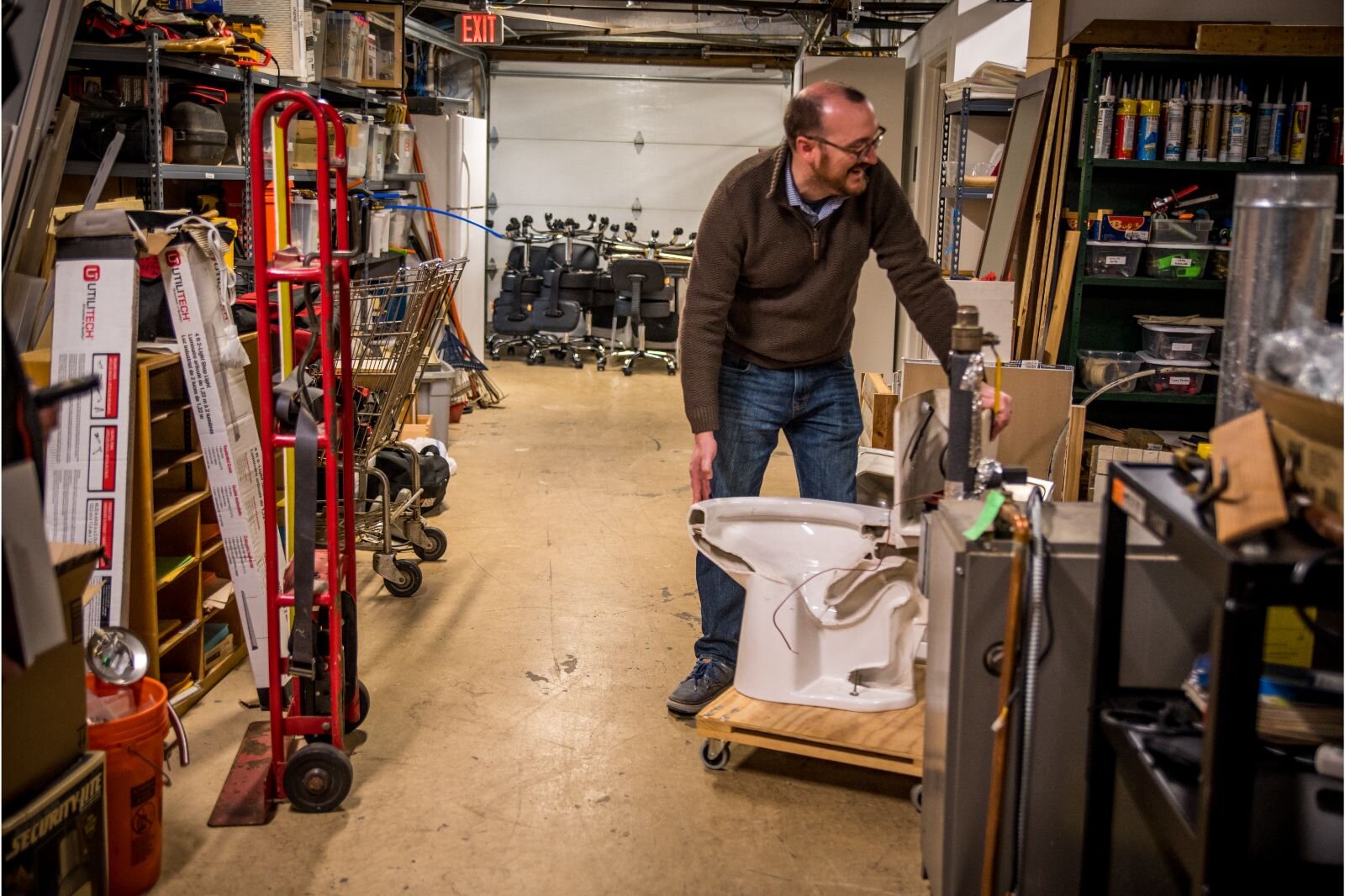
Through the program, citations and fines are paused if the homeowners are working with Community Homeworks to fix the issue. “Imagine you’re already stressed out because your finances are on the fritz,” Praedel says. “You can’t afford to make the exterior change as it is, so you get warned that you have to change the thing you can’t afford to do or you’re going to get fined more. So effectively, it’s a tax on poor people,” says Praedel, who is also a Kalamazoo City Commissioner.
They’ve also added pilot programs for critical home repair in Kalamazoo homes with expectant mothers and small children, and to assist homeowners in repairing houses in historical districts.
Much of what Community Homeworks could do was limited by the city boundaries, but another pilot project is moving its services into Kalamazoo Township. Their ultimate goal is to expand into the full county by the end of 2024.
Homeowners in crisis
Through near-weekly in-person and streamed home repair classes (that have built up a library of videos), Community Homeworks has helped homeowners DIY and avoid expensive repairs.
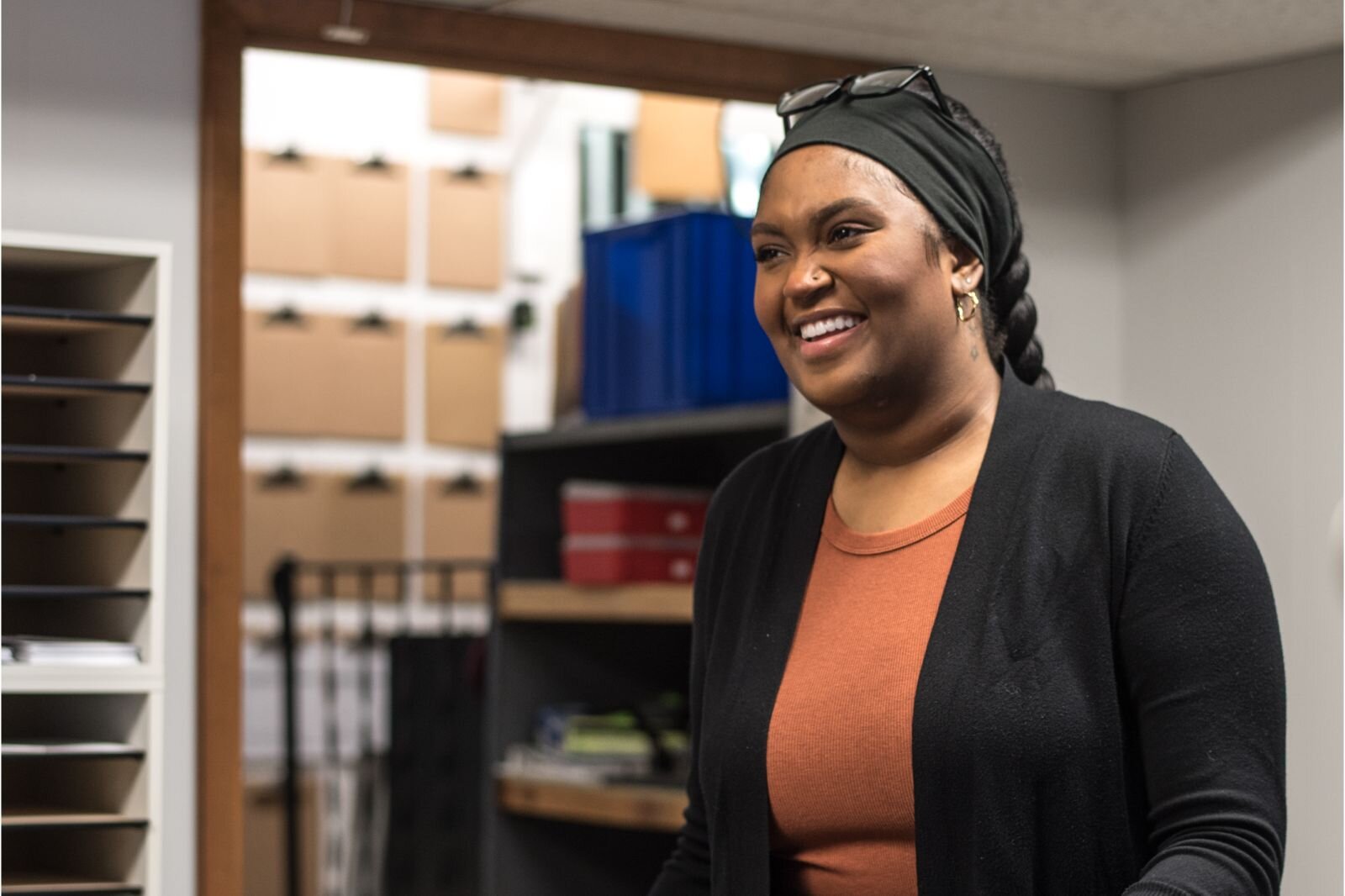
They also have a team of contractors and subcontractors on hand to do critical home repair, free to homeowners below 80% of the area median income, or about $56,000 or less for a family of four.
Praedel puts the emphasis on “critical.” The demand has been great, but Community Homeworks’ budget and staff have limits.
They are “laser-focused on critical home repairs in homes that have health or safety issues,” Praedel says. “Is there a current or imminent health or safety risk to the homeowner or their family? If the answer is yes, then that’s the project we want to prioritize.”
For example, a family came home with a baby who’d been in the neonatal intensive care unit for around 270 days, “and their furnace is out. The baby is still on breathing tubes and breathing machines. And we get out there and realize they need electrical and plumbing things just to sustain life for this little baby. What are you going to do, if you’re us? (If) you’ve got another person who’s got a leak in their bucket in the basement that they have to empty twice a day — we’re going to choose the baby,” Praedel says.
Humes remembers a case during a heat wave last summer. “There was a family that had an infant child, and they had been without electricity for two or three weeks.” No air conditioning, no fans, no refrigerator, and “they’ve got the little one in there,” she says.
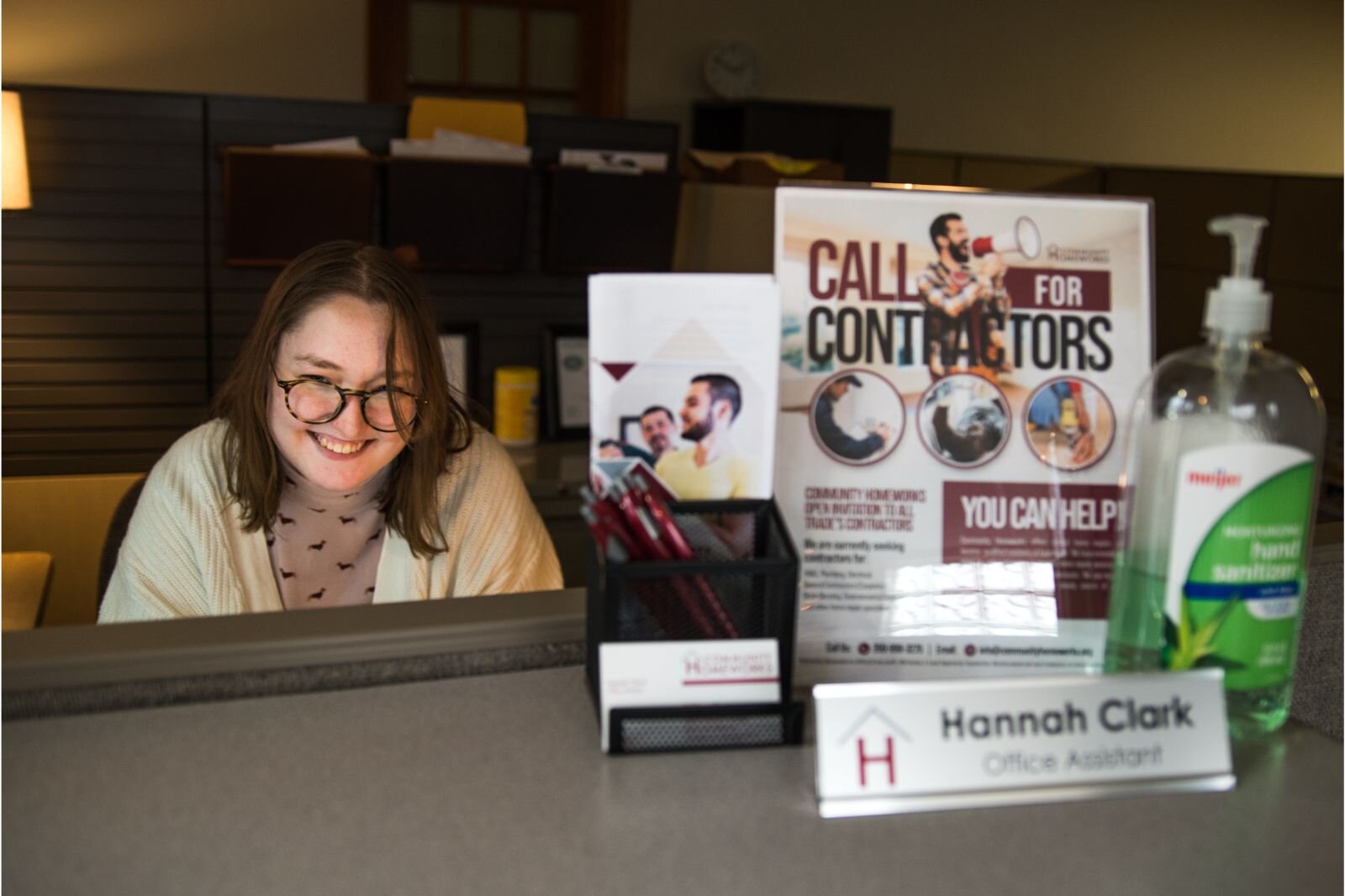
“It was less than a week that we were able to get their service turned back on,” Humes says. Sometimes major repairs strain Community Homeworks’ limitations, but they do all they can in emergency situations “especially if there are infants in the home.”
Sometimes they are called in on what Praedel calls “a ride-it-out situation.”
A woman called about her dad, who was in his 80s and had no working furnace. She wanted him to reach out to Community Homeworks for help. “But he refused to because he’s a prideful gentleman. He said, ‘Yeah, yeah, I’m just going to ride it out without heat over the winter.'” He had a space heater, he wore all his available jackets at once — but his daughter told CHW, “I’m convinced my dad’s going to die this winter if he doesn’t get help.”
“So we got him heat,” Praedel says.
This reminds Humes of “a single mom with two little ones, and their heater went out…. Just to get by, they were sleeping in their car with two kids,” with the motor running, in the driveway.
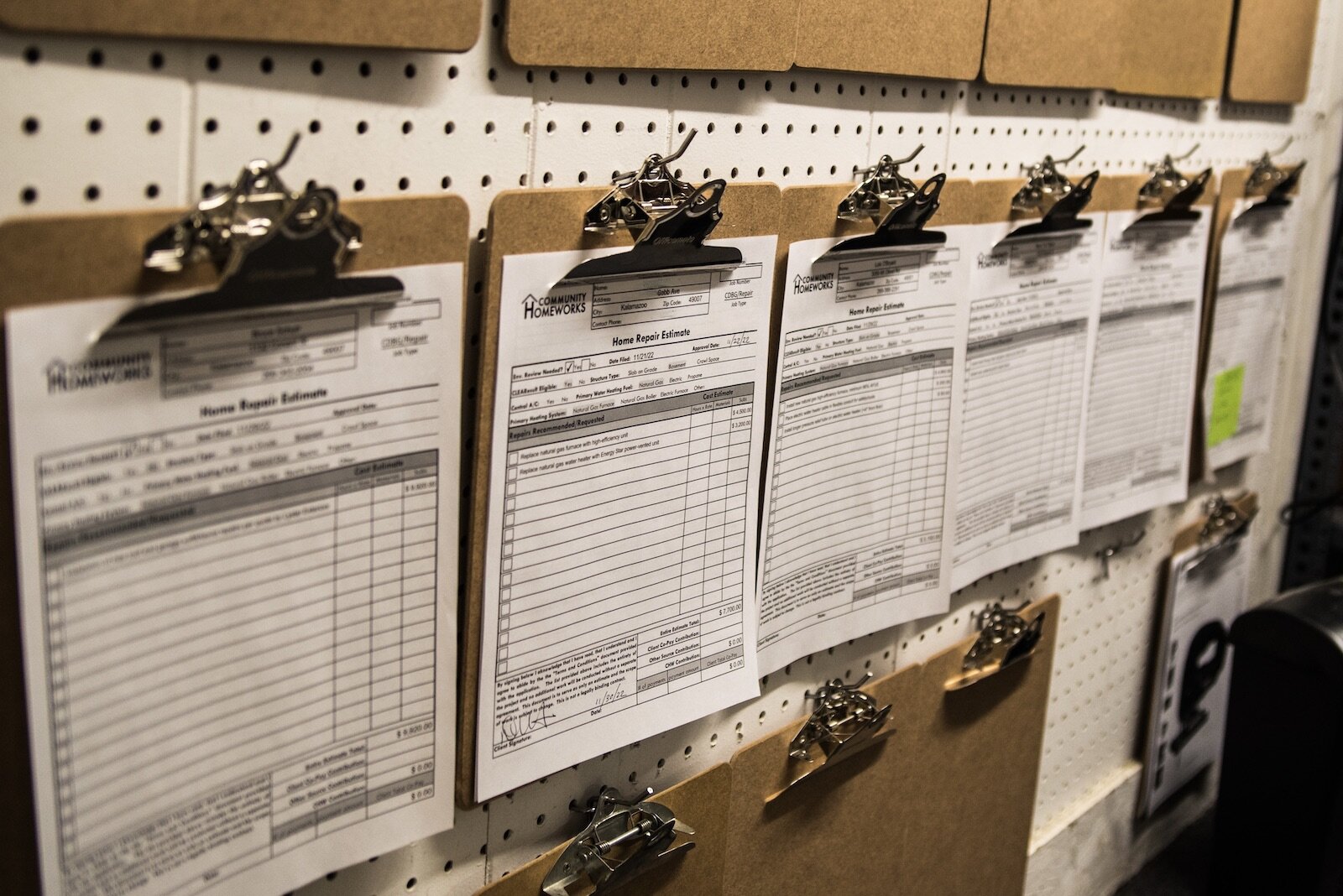
Praedel says these cases show how these problems can lead to homelessness if not addressed. “That really is a great snapshot. This is like a homelessness intervention strategy as much as it is anything because the alternative of not doing these things means eventually you either get kicked out of your house by inspectors, or you get to the point where it’s literally not safe or healthy enough for you to remain there with your family,” he says.
Another family had an old diesel furnace, Praedel says. “It malfunctioned and all the diesel fumes, soot, went all over the house. A newborn two-week-old baby, and mom and the baby had to couch surf for two or three months. We had to coordinate to get a gas line installed, remove this giant furnace, re-patch the concrete, install a new energy-efficient furnace –“
Humes continues “– clean all the soot. It was just black, like all of that had just been blowing through the air vents.”
“We’ve had people reach out who say they haven’t had heat for years,” Praedel says. Some have their ovens on, the door open, “little toddlers running around.” Others use space heaters constantly, in houses with old wiring, with “char marks” rising up walls from electrical outlets.
“It’s really scary work, sometimes,” he says.
Community Homeworks by the numbersFrom the Community Homeworks 2021 Outcomes report. The 2022 figures will be out early 2023.
Completed projects: 106 households where health or safety challenges were remedied.
79% of CHW’s projects were in core neighborhoods:
Northside, 37%
Edison, 30%
Eastside, 12%
Vine, 2%
Oakwood, 2%
Other, 17%Average household income of CHS project homes was $23,166.
71.5% of the households CHS served were Black and Latino.
Over half were under 30% of the Area Median Income.
Education programs were virtual in 2021. (In 2022 they have a mix of virtual and in-person workshops.) They had 5,183 workshop viewers in 2021, with all past episodes still available.
Community Homeworks has to be particular when hiring crew — they have to be skilled tradespeople and a bit of a social worker. “They see and experience some pretty heavy stuff,” Praedel says.
Humes says a project can take a month or more and can involve a lot of communication and time spent with families. “Stuff that they open up about can be pretty heavy. You hear about their story after they get comfortable with you and start to trust that we’re going to do that we said we’re going to do,” she says. “Our guys are really awesome about just being great listeners.”
Praedel says the worst part of their job is “sometimes we just have to say no. Sometimes the scope is so great, you’re looking this family in the eyes and you know that, what’s the alternative for this family?”
Staff “sit around the table, we come from all different perspectives to make a decision, so it’s not just one person making a decision. Sometimes it can get really tense, and like, kinda heavy,” he says. They go through all the options, try to find other resources, other people to help.
But, “if we do a project that’s $30,000 and takes our crew off for two or three weeks, how many dozens of people lost the opportunity to get support?”
“It’s just heavy when you go home,” he says.
But there are more successes than not. “That’s what gets you through and motivates you,” Praedel says. “For every one hard situation, you have ten where that person is in tears because they’re so grateful.”
Funds, subcontractors, needed
Community Homeworks has over 30 projects on its list at the time of the interview in early December.
Humes says with a laugh, “We’re always looking for more subcontractors!”
At the peak of the pandemic, Community Homeworks found it nearly impossible to get subcontractors. This year looks “a little better,” Praedel says.
The agency has three full-time construction people in-house, plus “we have a group of about a dozen or more subcontractors, pre-approved to work with us,” he says.
Humes says, “Our subcontractors are awesome, because they tend to prioritize. If we tell them hey, this is an emergency, like this family has no heat, no hot water, or there’s an active leak, they’ll try to move us up on the list.”
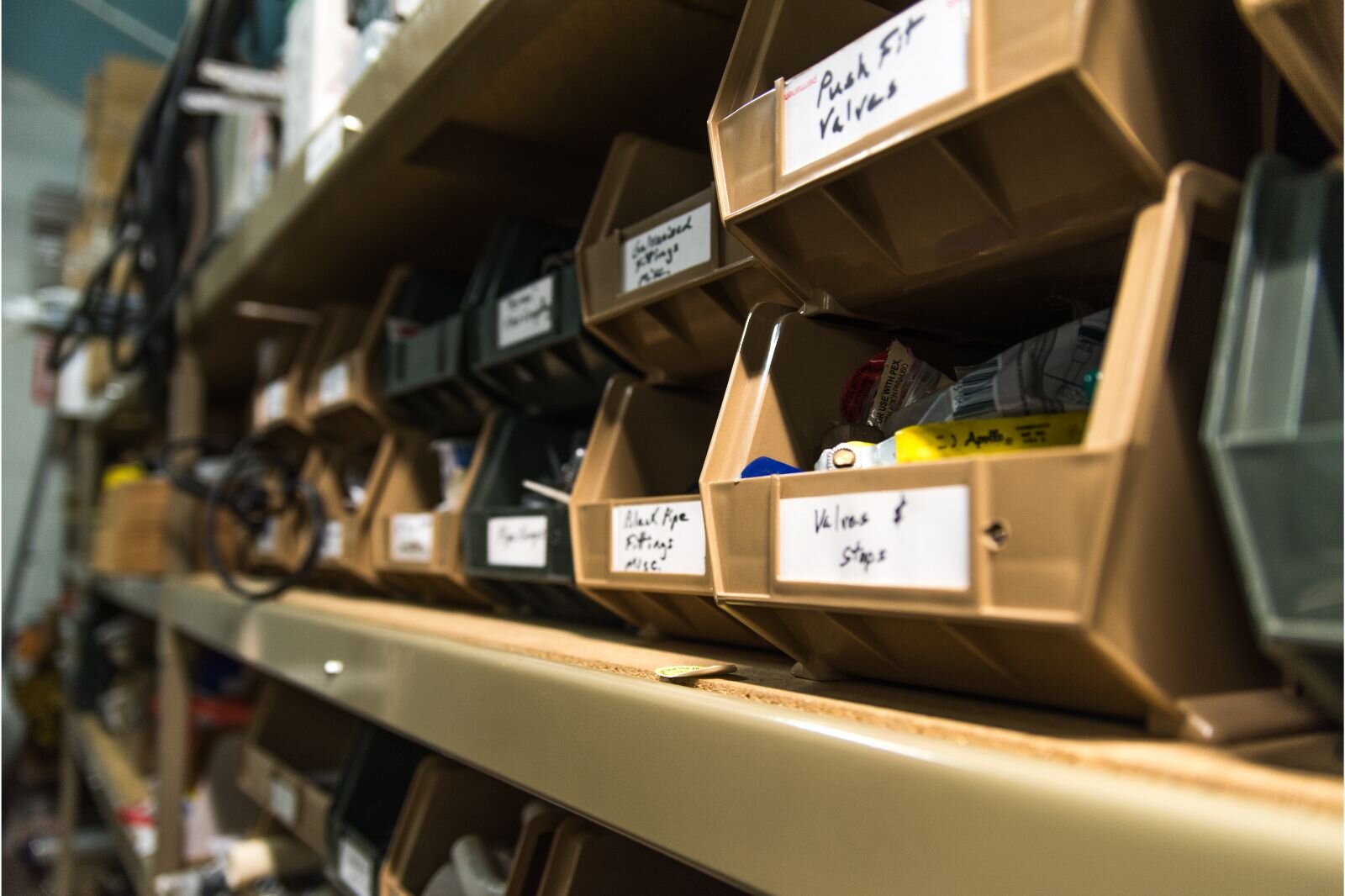
Their work is, again, in critical, but minor, home repair, Praedel emphasizes. “For the typical house we’ll spend about $5,000. That’s really all it takes to stabilize a house, initially.”
Their construction manager, Tom Tishler, does pre-inspections, Praedel says. “He’ll go through top to bottom, every element of the home, and inventory all the issues that he sees.” He works with the homeowner to figure out what needs to be fixed first. He decides, “do we need to drop everything and get there today?”
Some homes stay on their list, requiring repeat visits. They spread that work over the years, “do a little bit each year, so by the time we get to year three, you’re pretty well good to go for ten or more years,” Praedel says.
They do what they can with their budget, but are looking to do more. “We have an amazing local philanthropic community,” Praedel says.
They hope to court more individual donors. Government funding, especially federal, which Community Homeworks also receives, comes with restrictions that can slow down their work, Humes points out.
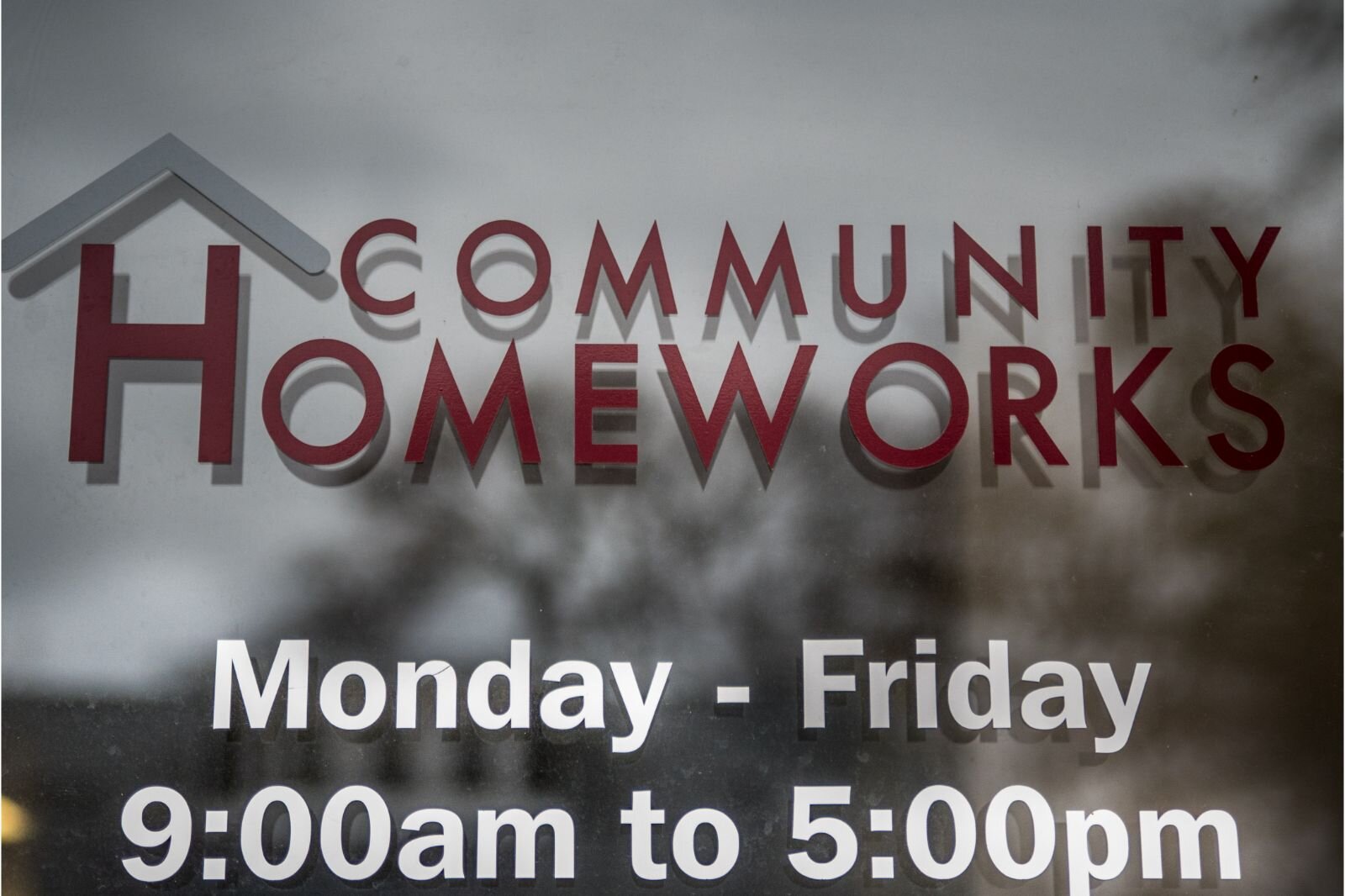
Community Homeworks has benefited from the Kalamazoo County Housing for All millage and other local funds. To avoid conflict-of-interest appearances, as a city commissioner Praedel doesn’t vote on any items that involve Community Homeworks. As CHW deputy director, Humes has the authority to be their primary contact on any issues related to the city.
Humes says Community Homeworks will collaborate with housing non-profits, “if it’s a larger project… like Milestone Senior Services has been a huge partner with us…. We want to make those connections to, so we’re getting people taken care of in a more holistic manner, instead of having to take care of small portions at a time.”
Just as any homeowner can feel overwhelmed with all the small or big problems in their homes, Community Homeworks’ staff can feel overwhelmed with all the homes that need fixing in Kalamazoo.
Yet, Praedel says, “I’ve never had a day where I’ve had trouble getting out of bed.” At Community Homeworks he feels like “I’m moving the needle for somebody or something…. We all are just very motivated people to do this work.”
Humes feels, “we need to get out there and do this, because we care about our community and we care about the people we serve.”

